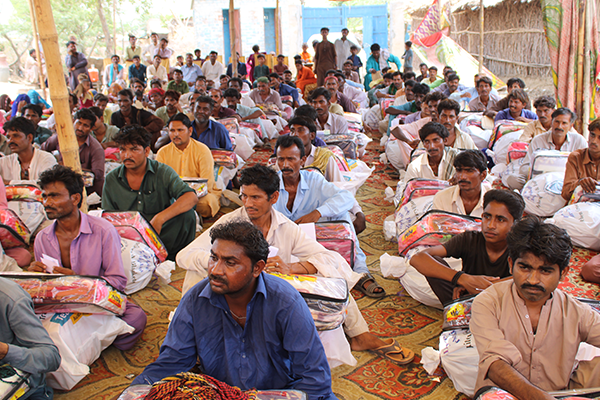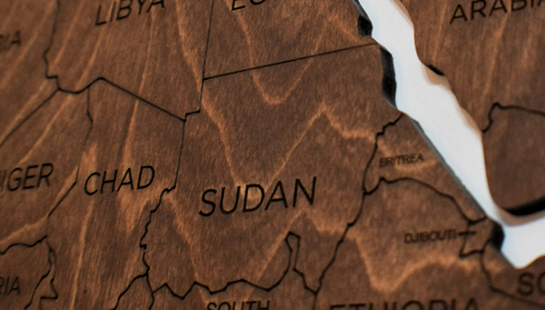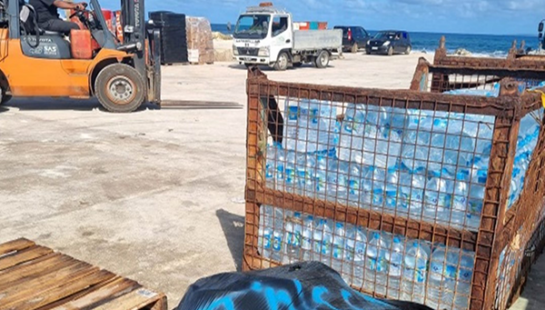Back in 2022, from June through to October, catastrophic flooding inundated one-third of Pakistan, leaving 33 million people in need of assistance.
Today, communities are still trying to recover from the impact of the floods—especially those who lost their homes, livestock, crops, and means of income. In the Sindh province, many families are still living in temporary shelters, as they can’t afford to buy materials to rebuild their homes.
And with limited safe drinking water or adequate toilets close by, waterborne diseases like malaria, typhoid, cholera and dengue fever are on the rise.
Our Response
Thanks to supporters like you, our local Christian Partner has been able to help 50 rural communities in the Sindh province stay healthy and take further steps towards rebuilding their lives.
Together we helped fund healthcare services, materials for rebuilding schools, and household supplies to help families meet their needs. Local church pastors helped identify flood-affected families in the province (most of them from ethnic minority groups) and set up distribution sites and medical camps at their church buildings. Widows and people with disabilities were given priority as those who are most vulnerable.
Thank you for contributing so generously to the recovery efforts in Pakistan. Here are some more ways we helped families rebuild their lives, with your support.
Free Healthcare And Medicines
Living in temporary shelters takes a toll on people’s health and wellbeing, as unsanitary conditions create a high risk of disease and infection.
With help from local churches, our Partner set up nine medical camps to provide free health examinations and medicines to people in the local community. In a three-month period, 1,657 people received free examinations and medicines, thanks to your support.
Tariq, who is married with six children, attended one camp near his village, so he and his children could access much-needed healthcare services. ‘After the flood, it was very difficult to cover the cost of the medicines and doctor fees. Many people in our village are facing the same problem,’ Tariq said.
‘The medical team checked and treated my family and neighbours, and gave us medicines free of cost. We took those medicines as per the doctor’s instruction, and we recovered well.’
Schools And Cooking Supplies
Around two million children in Pakistan have not returned to school since the floods, which destroyed or damaged close to 27,000 schools in the country.
Thanks to supporters like you, our Partner was able to provide building materials to rebuild schools in the Sindh province that were destroyed in the flood. The community constructed 45 buildings so that 2,250 students from rural villages can continue their education.
The schools have been built on high ground, with measures put in place to mitigate the risk of flood damage in the future.
Our Partner also provided 1,265 families with sturdy, long-lasting kitchen crockery and blankets to stay warm during Pakistan’s winter season. Khalid’s family received these items, which helped them survive. ‘The flood washed up everything in our house like our beds, crockery, and other everyday things,’ he said. ‘The team supported me, and other flood-affected people in my village, with blankets and crockery that we needed for survival right after heavy rains.’
We are grateful for the support to our family during difficult times. Your care, and your help has left a lasting impact on us that will never be forgotten.

Pray for Pakistan
Recovering from such catastrophic flooding is a long journey, but we place our hope in a compassionate God who is always with us. As God’s people, thank you for supporting communities in their time of need.
Please pray that:
- God would strengthen the local churches in Pakistan, so they can continue to assist those in need
- Families would be able to rebuild their homes and have safe places to live
- Children would return to school and resume their education
- People would find ways to resume their livelihoods and provide for their families.



